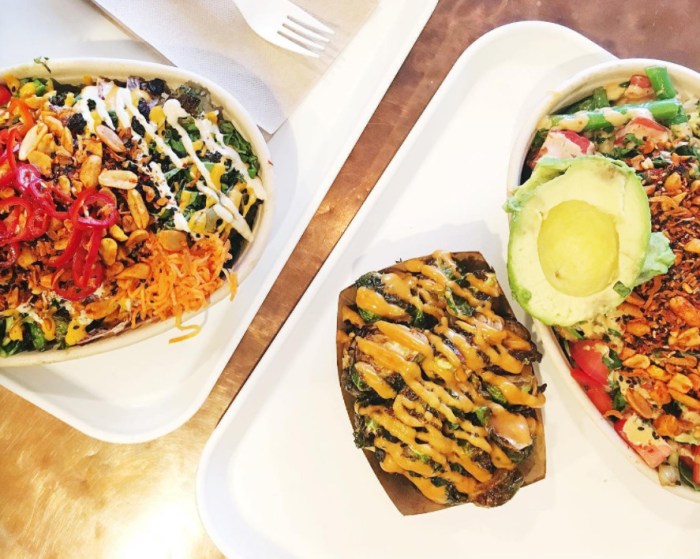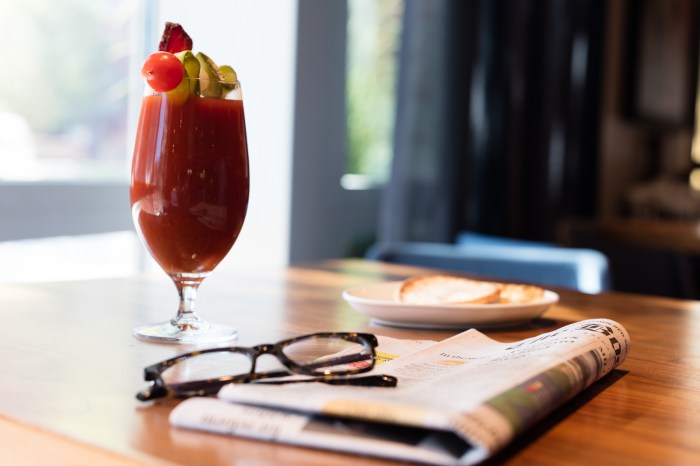A winter tomato versus summer’s heirlooms. Chocolate cake from a box versus the German chocolate cake you’d wait an hour in line for. Regular versus wagyu steak.
These are the comparisons Brady Lowe makes when talking about commodity pork versus heritage breed pigs, which are brought over from Europe and prized for their robust flavors. That’s not what you usually say about pork, and it’s why Lowe founded of Cochon555, an annual tasting competition that kicks off its 17-city tour in NYC this Sunday, challenging five local chefs to each create dishes using five different heritage breed pigs — using every part, snout to tail. “It really helps expose people to a bunch of different breeds,” Lowe says. “We came up with a really fun party environment to get into it.”
This year’s NYC competitors include chefs from new-age steakhouse Quality Eats; 2016 critical darling Olmsted; the East Village’s meat-focused bistro Saxon + Parole; Southern fried hotspot Birds & Bubbles and culinary exploration hub Chef’s Club. Each chef’s cuisine will be paired with a sommelier-selected wine. While getting these chefs in the same room is already cause for excitement, the event also features a pop-up bakery, cheese and charcuterie bars — all featuring products from local producers — a ramen station (with its own wine pairings!), plus punches mixed by local bartenders, and plenty of beers, wines and ciders. And, if you can still move, DJ Lord of Public Enemy will spin tunes after dinner. So Cochon555 is not your average walk-around tasting. But there’s even more to know.
The winning chef from each city goes on to compete in Chicago’s Grand Cochon. But the real winners are small family farms. When pig farming was industrialized about 75 years ago, breed diversity in this country dwindled. There are only about 500 farms raising the 13 heritage breeds nationwide, and getting into the business means unearthing knowledge that’s been lost since commercial farming took over the pig industry about 75 years ago. “The only place that can grow heritage breed pigs is family farms; they don’t survive in commodity lots,” explains Lowe. “It takes that care and that nature of family farms to do it.” The heritage breeds supplied by the small farms for Cochon don’t just taste better — they’re raised responsibly, on open pastures and allowed to grow to maturity without the use of steroids, which adds what Lowe calls a “social umami” to the event. To continue the legacy of heritage breeding, proceeds from the evening will benefitPiggy Bank, a farm that will give free heritage piglets to farmers willing to commit to total transparency about how they’ll be raised and sold. The point of Cochon555 is to get diners interested in heritage breeds, and to get chefs excited about serving it. But there is a catch: The participating chefs must use the entire pig, snout to tail, because Cochon555 has been talking about food waste long before the vegetable crowd started repurposing kale stems. Of course a farmer will jump at the chance to work with a Michelin-starred chef, says Lowe, but if that chef only wants tenderloins, “farmers are stuck being freezer managers.” To find chefs who are supporting the cause of snout-to-tail cooking all year long, look for menus with breakfast sausages and bolognese sauces, where “where a lot of whole animals hide.” “Heritage breed pork is the perfect protein, and that’s because it has intention behind it,” says Lowe. “It has a direct cause that’s attached to every bite.”
Unlike birds, it’s an animal that has enormous variety in the cuts of meat and flavors. Many restaurants don’t have a kitchen or staff big enough to break down an entire cow; pigs are a more manageable size. And because heritage breeds must be raised with more care than their commercial counterparts, they’re an opportunity for conversation about what we’re putting in our bodies and feeding our kids. “This becomes a gateway protein; it stands for something so much bigger.”















